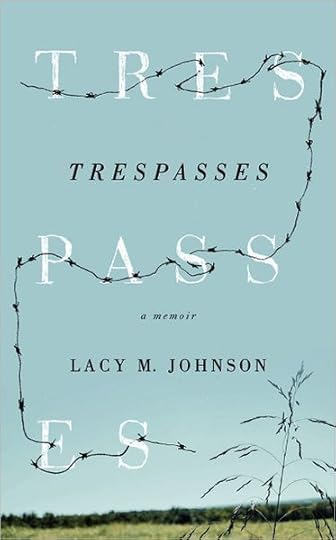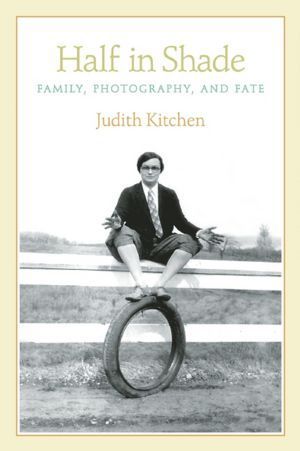On Glaciers, Trespasses and Half in Shade (but really all about family history)
 I had some intriguing readerly synergy recently when I picked up Alexis Smith's Glaciers. Family history plays a big part of this slim novel, not in the angsty painful Thanksgiving sort of way (hello Home For the Holidays) but rather in a questioning of memory and collecting of artifacts. In the midst of this truly lovely portrait of a single woman who dreams of Amsterdam and works diligently at a quiet job as a book restorer, there is much thinking about where she came from and what she remembers of that place and her people. (It happens to be Alaska which makes the book all that much more appealing for me.)
I had some intriguing readerly synergy recently when I picked up Alexis Smith's Glaciers. Family history plays a big part of this slim novel, not in the angsty painful Thanksgiving sort of way (hello Home For the Holidays) but rather in a questioning of memory and collecting of artifacts. In the midst of this truly lovely portrait of a single woman who dreams of Amsterdam and works diligently at a quiet job as a book restorer, there is much thinking about where she came from and what she remembers of that place and her people. (It happens to be Alaska which makes the book all that much more appealing for me.)
 But I did not pick up Glaciers expecting all of that - I gravitated to it because of Isabel's job in a library and the potential for a truly smart romance (the love story is so subtle and sublime, I can't recommend it enough). But I read it while finishing up Lacy Johnson's Trespasses and on on the heels of Judith Kitchen's Half in Shade. Initially I was reading each of those books for separate review but the different way in which they address the same topic (family history) has compelled me to plan a dual review. In Trespasses, Johnson has collected short narratives (often only a page long) either garnered from interviews with family members or fancifully created from what her family members don't tell her. She knows enough history (and has access to those who know) to create what is likely a very true story of who her people are. (And in a long series of interesting endnotes she reveals what she does not know but suspects.)
But I did not pick up Glaciers expecting all of that - I gravitated to it because of Isabel's job in a library and the potential for a truly smart romance (the love story is so subtle and sublime, I can't recommend it enough). But I read it while finishing up Lacy Johnson's Trespasses and on on the heels of Judith Kitchen's Half in Shade. Initially I was reading each of those books for separate review but the different way in which they address the same topic (family history) has compelled me to plan a dual review. In Trespasses, Johnson has collected short narratives (often only a page long) either garnered from interviews with family members or fancifully created from what her family members don't tell her. She knows enough history (and has access to those who know) to create what is likely a very true story of who her people are. (And in a long series of interesting endnotes she reveals what she does not know but suspects.)
 In Half in Shade, Kitchen is left with a collection of family photos (replicated in the book) and she does not know who many of the people are. She is forced to write about the little she knows and lament how much she lost by not gaining the pictures when there was time to ask the questions of who and where and why. Her book also includes created memories but she is left with making things up (something she admits up front) in the hopes that she is maybe correct. (Perhaps a couple on a ship are distant relatives emigrating to the US - but she will never know.)
In Half in Shade, Kitchen is left with a collection of family photos (replicated in the book) and she does not know who many of the people are. She is forced to write about the little she knows and lament how much she lost by not gaining the pictures when there was time to ask the questions of who and where and why. Her book also includes created memories but she is left with making things up (something she admits up front) in the hopes that she is maybe correct. (Perhaps a couple on a ship are distant relatives emigrating to the US - but she will never know.)
As I sit on an huge pile of pictures from my own great grandmother I can sympathize hugely with Kitchen and having been lucky enough to ask my grandmother many questions before she died, I can understand Johnson's determination to get the history down while she can (she does reveal the questions that were too difficult to ask however). Both books have had me thinking a lot about my own family history and the gaps we have and the pictures with unidentified people. And then in the mist of all this, I consumed Glaciers in a few short days falling madly in love with Smith's characters and incredibly elegant writing style. (Writers need to read this book - it's a lesson in understatement.)
Family history never ceases to compel me; I could write about it forever. (And that is why I wasn't surprised when my own family history, just a bit, crept into MAP.)




